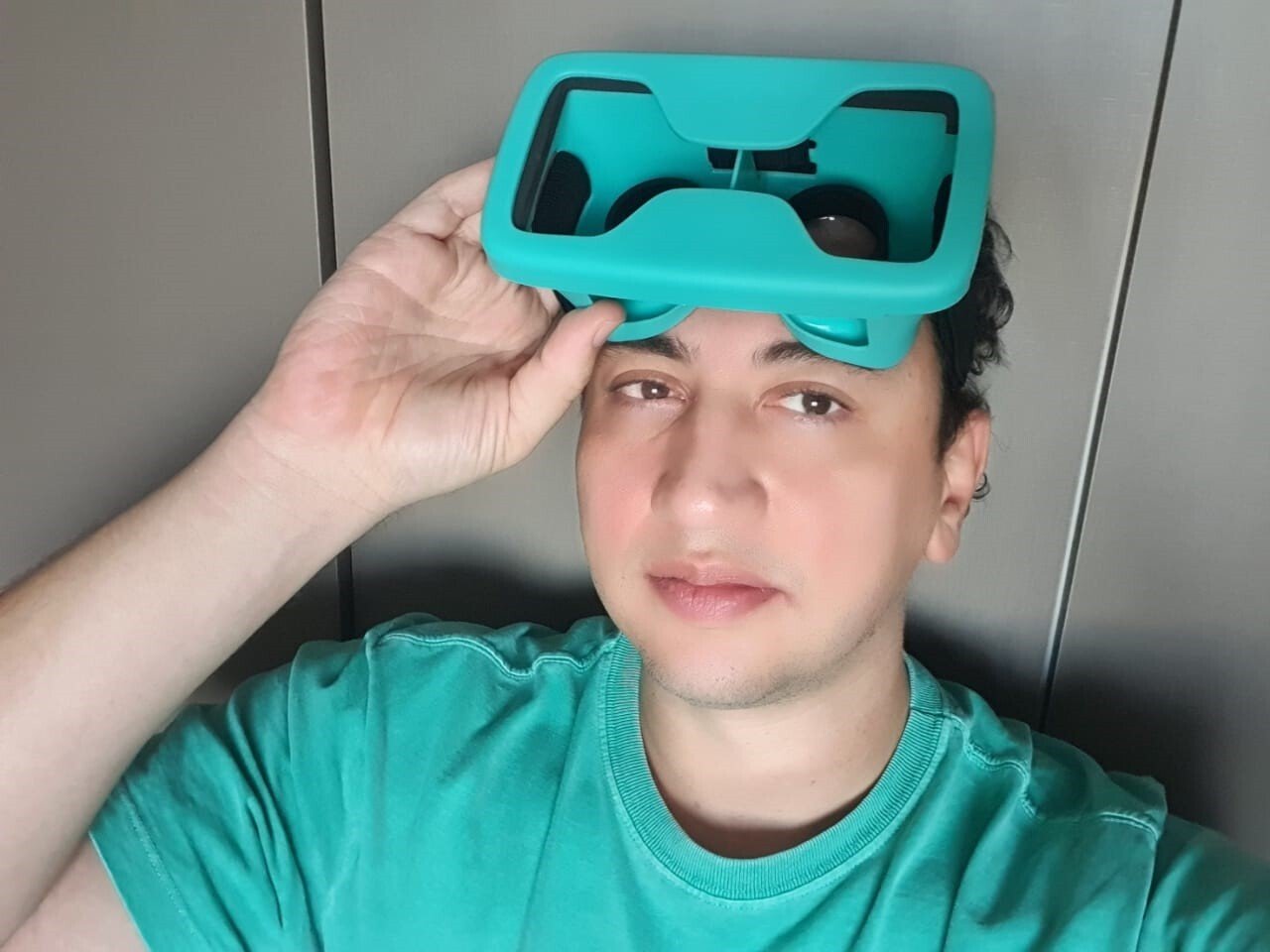It may not sound like the coolest kid in the startup class: Yet another metaverse-centered company out of tech hotspot Brazil. But VRGlass distinguishes itself with the quality and details of its offerings and counts the NBA, Coca-Cola, Adidas and NASA’s Singularity University among its clients. Founded by serial entrepreneur Ohmar Tacla, who created his first tech outfit at 19, it offers immersive software and content that enables companies to create 3D environments within minutes. Uses range from corporate trainings—that are actually enjoyable—to gamification of sports and music events to e-commerce that allows for lifelike shopping via avatars. Techonomy sat down with Tacla to talk about curing pandemic-era Zoomphobia, why emotional analytics may be the next wave in data, and his journey from performing in a garage band to heading up a company at XR’s cutting edge.
Techonomy: In 2017 you created an app-based version of VRGlass’ current platform, but recently you introduced a “self-service” model that allows companies to create metaverses much more quickly, and buy them with a credit card. Can you tell us about this new iteration?

Ohmar Tacla: Yes. Something that used to take three months now takes only three minutes. You choose from our series of templates that include things like a convention center, a cinema, restaurants, and even a karaoke bar, via the dashboard. Then it’s immediately available to the end-users. We think of our product as akin to a WordPress, but for metaverses.
Techonomy: Are there areas that are adapting to your platform with the greatest speed, and that find the greatest need for it?
OT: For our clients Coca-Cola and Santander, the corporate learning arm is especially receptive to what we do. It’s ideal to have 3D education for them because usually employees would be stuck just watching a video on Zoom. But with our virtual setup people can take a break from a session and go to a lobby or a restaurant and do some networking, visit some exhibit halls. People end up forgetting about the graphics and they’re just immersed in their avatar and the conversations they’re having.
Techonomy: One of the questions skeptics, and even non-skeptics, might have is, how could connecting with an avatar be as effective as connecting with a human, even if it’s only via the web? But avatars are increasingly realistic. What are some of the breakthroughs on the horizon?

OT: Facebook’s new headset is going to have internal cameras that recognize micro expressions so it’s going to know when you’re sad, happy, excited, confused, which will allow avatars to reflect emotions more accurately. That’s going to be a huge change because right now avatars’ faces are in the same expression all the time. There’s also an increasing ability to learn about the feelings of a person based on their voice’s tone and variation. So emotional analytics will be informing avatar realism in exciting ways.
Techonomy: Entrepreneurs often get unconventional starts in business, but your beginnings were particularly “rock n roll”—quite literally. Can you tell us about your start?
OT: It’s true! I was in a garage band my first year at university and we used to play grunge music. I wanted to do a website for it so I learned Macromedia Flashand I started doing animations for the music videos. Soon I won a very big award here in Brazil for animation, and advertising agencies started contacting me to work with them. I started my own agency. By the end, when I was 24, we had 80 employees and clients including AT&T, Nestle, and Mitsubishi. It was really crazy.
Techonomy: VRGlass is part of the Oracle for Startups program, which offers free cloud and other helpful tools. Has your experience with Oracle been akin to that of an accelerator?
OT: We’ve had the unique experience of Oracle being a client as well because they’ve used us for their e-commerce. But besides that, it’s been very different from accelerators that usually offer some weekly webinars, generic ones, and then they have some mentors who sometimes have no experience in your industry. Oracle was very active. We talked to them every day for like two and a half years and in some ways they were almost like a part of the company.
(This conversation has been edited and condensed for clarity.)
Oracle for Startups is a global program offering hands-on and self-service journeys to help startups scale. Free and easy to join, Oracle for Startups offers business-boosting resources such as cloud credits, mentoring, technical support, and access to customers – giving startups a real-world advantage.
Read our other “Meet the Startups” profiles here.















